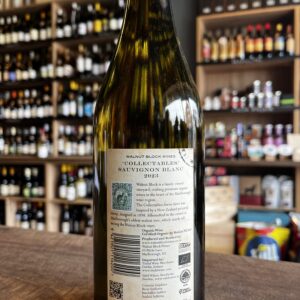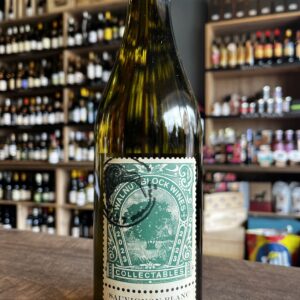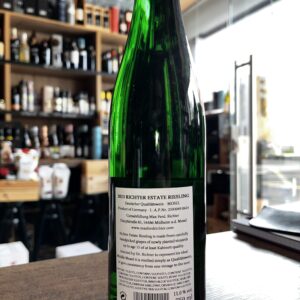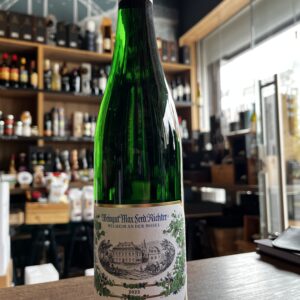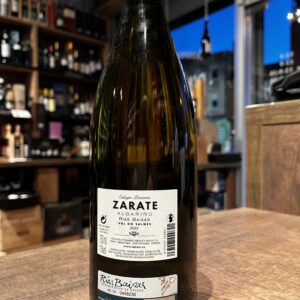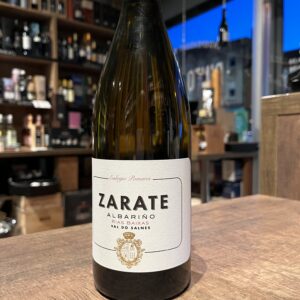-
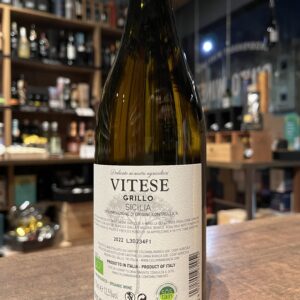
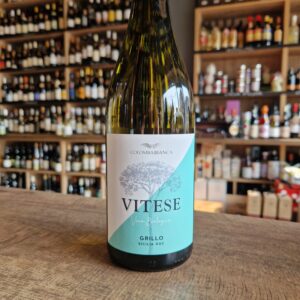 The Colomba Bianca winery was founded in 1970. During the last 10 years, under the guidance of our Chairman Leonardo Taschetta, it has become the biggest wine growing co-operative in Sicily. The company today, can, in fact, count on circa 2480 partners and extends along 7500 hectars of vineyards between the provinces of Trapani, Palermo, Agrigento, Caltanissetta e Ragusa, with 5 wineries distributed in the whole territory. The vineyards can be found in areas which benefit of a vast pedoclimatic diversity, from the low coastal areas up to an altitude of 600 metres above sea level. "We work with the aim that our farmers receive the right compensation for their work. This adds dignity to Sicilian agriculture and to the wines which express at best our territory. It is for this reason that each one of our wines is dedicated to our farmers." - Colomba Bianco Grillo is the flagship of Sicily's indigenous white varieties. Famous for its role in the production of Marsala wines, but has recently come into its own as a varietal making light, fresh and citrussy wines. Ideal with fish first courses, delicate risottos and white meat dishes.
The Colomba Bianca winery was founded in 1970. During the last 10 years, under the guidance of our Chairman Leonardo Taschetta, it has become the biggest wine growing co-operative in Sicily. The company today, can, in fact, count on circa 2480 partners and extends along 7500 hectars of vineyards between the provinces of Trapani, Palermo, Agrigento, Caltanissetta e Ragusa, with 5 wineries distributed in the whole territory. The vineyards can be found in areas which benefit of a vast pedoclimatic diversity, from the low coastal areas up to an altitude of 600 metres above sea level. "We work with the aim that our farmers receive the right compensation for their work. This adds dignity to Sicilian agriculture and to the wines which express at best our territory. It is for this reason that each one of our wines is dedicated to our farmers." - Colomba Bianco Grillo is the flagship of Sicily's indigenous white varieties. Famous for its role in the production of Marsala wines, but has recently come into its own as a varietal making light, fresh and citrussy wines. Ideal with fish first courses, delicate risottos and white meat dishes. -
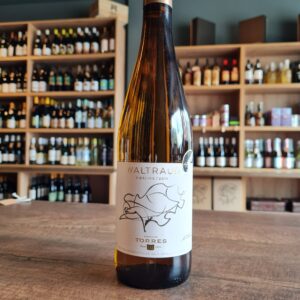 Waltraud is made with the best harvests of Riesling, which is one of the most highly prized aromatic varieties - and rightly so given that it is capable of producing such an elegantly sublime and magnificently fruity wine as this. Waltraud Maczassek, of German nationality, put down roots in the Penedès region when she married Miguel A. Torres. That's why he decided to make a wine in her honour, using German varieties but planted in the Upper Penedes. The wine has a luminous gold color. On the nose reminiscent of orange blossom, jasmine, quince and pineapple. Elegant, firm-bodied and silky, with echoes of spice bread on the finish. Pairs beautifully with oysters and shellfish. Sublime in combination with fish, rice dishes, pasta with mariniere sauce, duck in sweet sauce.
Waltraud is made with the best harvests of Riesling, which is one of the most highly prized aromatic varieties - and rightly so given that it is capable of producing such an elegantly sublime and magnificently fruity wine as this. Waltraud Maczassek, of German nationality, put down roots in the Penedès region when she married Miguel A. Torres. That's why he decided to make a wine in her honour, using German varieties but planted in the Upper Penedes. The wine has a luminous gold color. On the nose reminiscent of orange blossom, jasmine, quince and pineapple. Elegant, firm-bodied and silky, with echoes of spice bread on the finish. Pairs beautifully with oysters and shellfish. Sublime in combination with fish, rice dishes, pasta with mariniere sauce, duck in sweet sauce. -
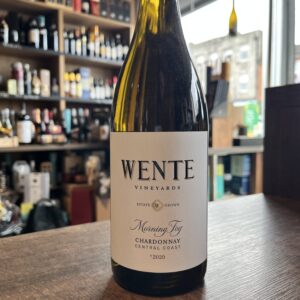 Estate Grown Morning Fog Chardonnay is named for the morning coastal fog pushed by Pacific wind streams into the bowl of the San Francisco Bay. This daily phenomenon moderates the climate to produce excellent, beautifully balanced Chardonnay.Wente Vineyards is one of the oldest, family run wineries, in America having been established in 1883. The Estate extends to some 3000 acres, 2000 in the San Francisco Bay appellation and 1000 acres in Arroyo Seco, Monterey to the south.Pioneers of the Californian Chardonnay clone Wente claim 80% of all Californian Chardonnay is from the Wente original clone. The family, German in origin, has long been innovators introducing stainless steel fermentation tanks in the 60’s and introducing varietal labelled wines as long ago as the 1930’s. Today, fifth generation winemaker Karl D. Wente carries on the family winemaking tradition. Such a smooth wine is delicious to enjoy alone at any time, but if you prefer to pair it, go for light flavoured meals like white meats, pastas, risottos with no added spice.
Estate Grown Morning Fog Chardonnay is named for the morning coastal fog pushed by Pacific wind streams into the bowl of the San Francisco Bay. This daily phenomenon moderates the climate to produce excellent, beautifully balanced Chardonnay.Wente Vineyards is one of the oldest, family run wineries, in America having been established in 1883. The Estate extends to some 3000 acres, 2000 in the San Francisco Bay appellation and 1000 acres in Arroyo Seco, Monterey to the south.Pioneers of the Californian Chardonnay clone Wente claim 80% of all Californian Chardonnay is from the Wente original clone. The family, German in origin, has long been innovators introducing stainless steel fermentation tanks in the 60’s and introducing varietal labelled wines as long ago as the 1930’s. Today, fifth generation winemaker Karl D. Wente carries on the family winemaking tradition. Such a smooth wine is delicious to enjoy alone at any time, but if you prefer to pair it, go for light flavoured meals like white meats, pastas, risottos with no added spice. -
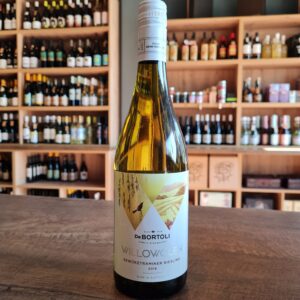 Vegan Gewurztraminer/ Riesling blend. Rose petal aromas with a hint of spice and fresh citrus. The palate is sweet, with rosewater Traminer characters complemented by the Riesling adding a citrus freshness. Try with spicy pork buns or if you're adventurous, venison salad with Thai herbs or spicy food in general. Did I mention this wine is Vegan?
Vegan Gewurztraminer/ Riesling blend. Rose petal aromas with a hint of spice and fresh citrus. The palate is sweet, with rosewater Traminer characters complemented by the Riesling adding a citrus freshness. Try with spicy pork buns or if you're adventurous, venison salad with Thai herbs or spicy food in general. Did I mention this wine is Vegan? -
 Wine is cheaper than Therapy! We put together these great wines, 3 whites and 3 reds that would put a smile on anyone's face, any day of the week. These wines can be enjoyed with or without food, but we always recommend a nibble. On the whites: Muralhas Vinho Verde - Monção e Melgaço has been producing wines and recognized for it since Roman occupation times, but was with Afonso III, 5th King of Portugal(1210-1279) that signed a ”Foral” that conceded Monção e Melgaço habitants the owners of the local wine and therefore they produced it with pride as they do today. The wine is made from the Alvarinho (predominant) and Trajadura varieties, indigenous to Portugal and the region, more specifically. The dry Muralhas de Moncao Vinho Verde never seems intrusive, but is soft, elegant and harmonious with no wood whatsoever. The wine goes well not only as an aperitif, but also with salads, seafood, fish dishes and white meat. Vitese Colomba Bianca Grillo Biologico- Grillo is the flagship of Sicily's indigenous white varieties, with its aromatic and floral nose. Fresh and harmonious on the well-structured palate, the Vitese Grillo has a long and elegant finish. Lovingly white, Lovingly good !! Bardos Rueda Verdejo- This artisan verdejo is part of the reason the Spanish Rueda region has become quite popular. Made unapologetically, you will find yourself like a true "Bard" drinking this wine. Delicious! On The Reds El Castro de Valtuille Joven - Made by the great Raul Perez. Fresh, mineral-tinged redcurrant and cherry scents that show very good clarity. Tangy, focused and pure on the palate, offering intense flavors of bitter cherry and red berry preserves. Shows a light touch that's quite pinot-like, along with a touch of smokiness that carries through a long, mineral-driven finish. If you want to show somebody what the Spanish region of Mencia smells, feels and tastes like, serve this one. Adega de Penalva Dão 'Indigena' Tinto -Adega de Penalva wines are delicious everyday examples of one of Portugal’s most intriguing appellations — the Dão. Perched above the Dão river itself as it snakes through its granite valleys, the Adega de Penalva is one of the leading cooperatives in the area, boasting around a thousand member growers. It’s important to note, though, that the average holding per member amounts to barely over a hectare—a figure that reminds us how tenaciously much of rural Portugal clings to its old ways. (On that note, all fruit destined for the ‘Indigena’ bottlings is hand-harvested.) Since its founding in the 1960s, the Adega has been collecting its members’ grapes and producing clean, characterful wines with a minimum of fuss. Aromas of leather and blueberries and notes of dark fruits with cherry and raspberry. Tank N32 Primitivo Appassimento IGT - Couldn't finish this wine case without bringing out the guns. This passionate and very well intended Italian red impresses with its perfect combination of elegance and strength. The bouquet reveals aromas of ripe cherries, juicy plums and dried fruit. In particular figs, dates and raisins come to mind. Has a dense and concentrated character. The pleasant and equally subtle residual sweetness gives this red wine a wonderful velvetiness. The long finish of Tank No 32 is carried by delicate notes of nougat and dark chocolate.
Wine is cheaper than Therapy! We put together these great wines, 3 whites and 3 reds that would put a smile on anyone's face, any day of the week. These wines can be enjoyed with or without food, but we always recommend a nibble. On the whites: Muralhas Vinho Verde - Monção e Melgaço has been producing wines and recognized for it since Roman occupation times, but was with Afonso III, 5th King of Portugal(1210-1279) that signed a ”Foral” that conceded Monção e Melgaço habitants the owners of the local wine and therefore they produced it with pride as they do today. The wine is made from the Alvarinho (predominant) and Trajadura varieties, indigenous to Portugal and the region, more specifically. The dry Muralhas de Moncao Vinho Verde never seems intrusive, but is soft, elegant and harmonious with no wood whatsoever. The wine goes well not only as an aperitif, but also with salads, seafood, fish dishes and white meat. Vitese Colomba Bianca Grillo Biologico- Grillo is the flagship of Sicily's indigenous white varieties, with its aromatic and floral nose. Fresh and harmonious on the well-structured palate, the Vitese Grillo has a long and elegant finish. Lovingly white, Lovingly good !! Bardos Rueda Verdejo- This artisan verdejo is part of the reason the Spanish Rueda region has become quite popular. Made unapologetically, you will find yourself like a true "Bard" drinking this wine. Delicious! On The Reds El Castro de Valtuille Joven - Made by the great Raul Perez. Fresh, mineral-tinged redcurrant and cherry scents that show very good clarity. Tangy, focused and pure on the palate, offering intense flavors of bitter cherry and red berry preserves. Shows a light touch that's quite pinot-like, along with a touch of smokiness that carries through a long, mineral-driven finish. If you want to show somebody what the Spanish region of Mencia smells, feels and tastes like, serve this one. Adega de Penalva Dão 'Indigena' Tinto -Adega de Penalva wines are delicious everyday examples of one of Portugal’s most intriguing appellations — the Dão. Perched above the Dão river itself as it snakes through its granite valleys, the Adega de Penalva is one of the leading cooperatives in the area, boasting around a thousand member growers. It’s important to note, though, that the average holding per member amounts to barely over a hectare—a figure that reminds us how tenaciously much of rural Portugal clings to its old ways. (On that note, all fruit destined for the ‘Indigena’ bottlings is hand-harvested.) Since its founding in the 1960s, the Adega has been collecting its members’ grapes and producing clean, characterful wines with a minimum of fuss. Aromas of leather and blueberries and notes of dark fruits with cherry and raspberry. Tank N32 Primitivo Appassimento IGT - Couldn't finish this wine case without bringing out the guns. This passionate and very well intended Italian red impresses with its perfect combination of elegance and strength. The bouquet reveals aromas of ripe cherries, juicy plums and dried fruit. In particular figs, dates and raisins come to mind. Has a dense and concentrated character. The pleasant and equally subtle residual sweetness gives this red wine a wonderful velvetiness. The long finish of Tank No 32 is carried by delicate notes of nougat and dark chocolate. -
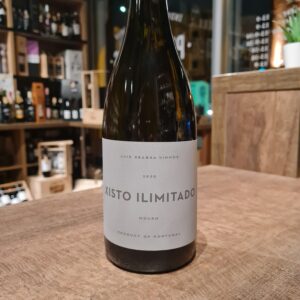 Another under the radar Portuguese White. This drop is now considered one of the new best contemporanean whites in Portugal. Produced by Luis Seabra, who worked for more than 10 years as an oenologist for Dirk Niepoort and finally started to follow his own path in 2012. The name he gives to his wines is indicative of his vision of wine: Xisto (Schist). He makes very pure wines that reflect their terroir. Luis Seabra sets a new standard in the Douro with his pure wines. Xisto Ilimitado, is a Portuguese analogue of the idea of a "village-level" Burgundy. A blend of six varieties planted in three sub-areas of the Douro, Ilimitado is a glimpse of the appellation's schist soil. Luis Seabra, has concentrated his production on the different soil types of the valley. Bright, concentrated and fresh, Xisto Ilimitado is an excellent introduction to the new Douro. Vineyards located in Cima Corgo. The vines are between 30 and 45 years old, planted in micaceous schist at an altitude of 500 to 600 m, and are a sub-region that experiences extreme highs and lows in terms of temperature, with one of the largest day-night temperature deltas in Portugal. As such, the fruit experiences an extended resting period. Annual rainfall of 400 mm typical of the region. Goes wonderfully with roasted poultry, white fish and seafood, and especially with the spiciest preparations
Another under the radar Portuguese White. This drop is now considered one of the new best contemporanean whites in Portugal. Produced by Luis Seabra, who worked for more than 10 years as an oenologist for Dirk Niepoort and finally started to follow his own path in 2012. The name he gives to his wines is indicative of his vision of wine: Xisto (Schist). He makes very pure wines that reflect their terroir. Luis Seabra sets a new standard in the Douro with his pure wines. Xisto Ilimitado, is a Portuguese analogue of the idea of a "village-level" Burgundy. A blend of six varieties planted in three sub-areas of the Douro, Ilimitado is a glimpse of the appellation's schist soil. Luis Seabra, has concentrated his production on the different soil types of the valley. Bright, concentrated and fresh, Xisto Ilimitado is an excellent introduction to the new Douro. Vineyards located in Cima Corgo. The vines are between 30 and 45 years old, planted in micaceous schist at an altitude of 500 to 600 m, and are a sub-region that experiences extreme highs and lows in terms of temperature, with one of the largest day-night temperature deltas in Portugal. As such, the fruit experiences an extended resting period. Annual rainfall of 400 mm typical of the region. Goes wonderfully with roasted poultry, white fish and seafood, and especially with the spiciest preparations


